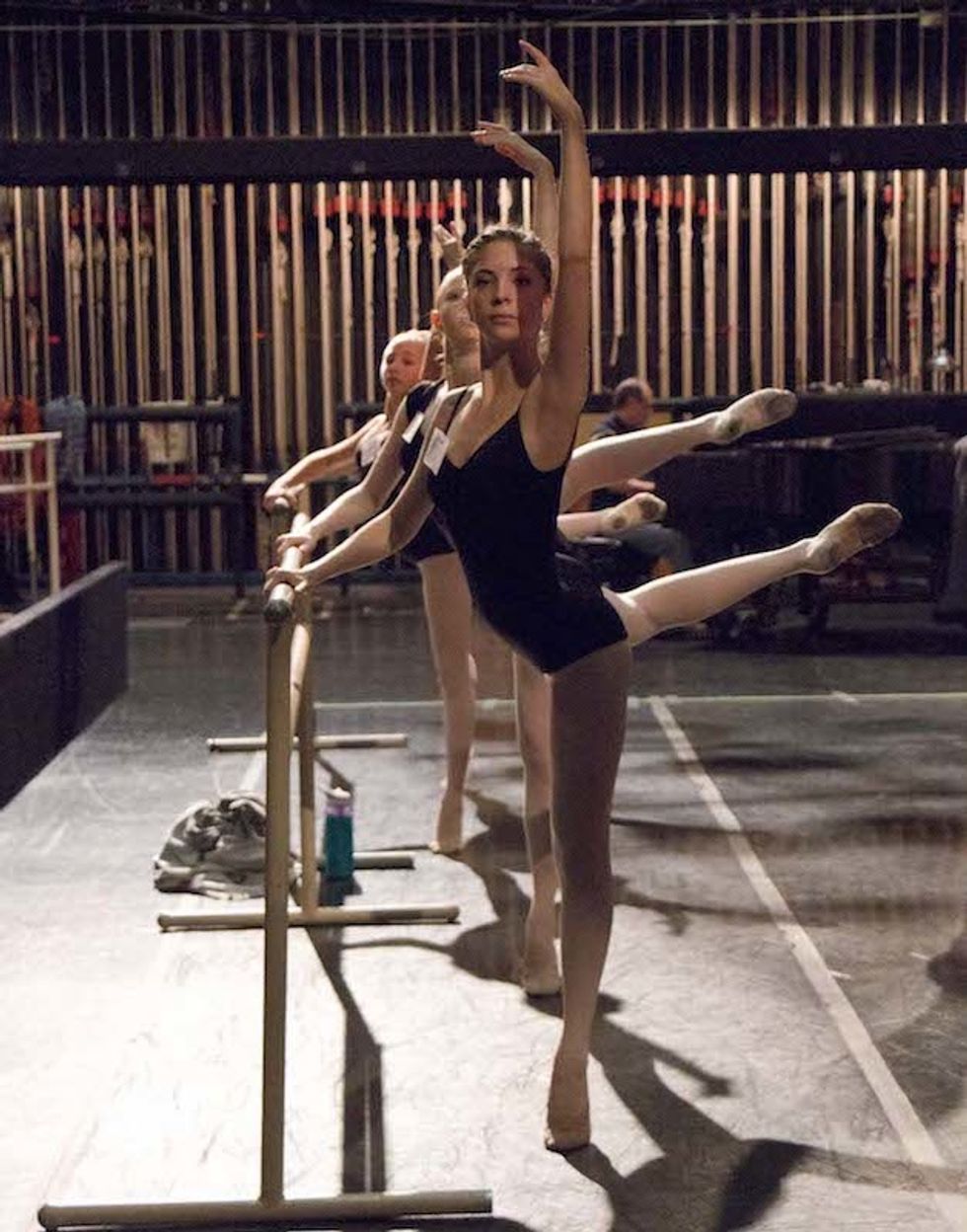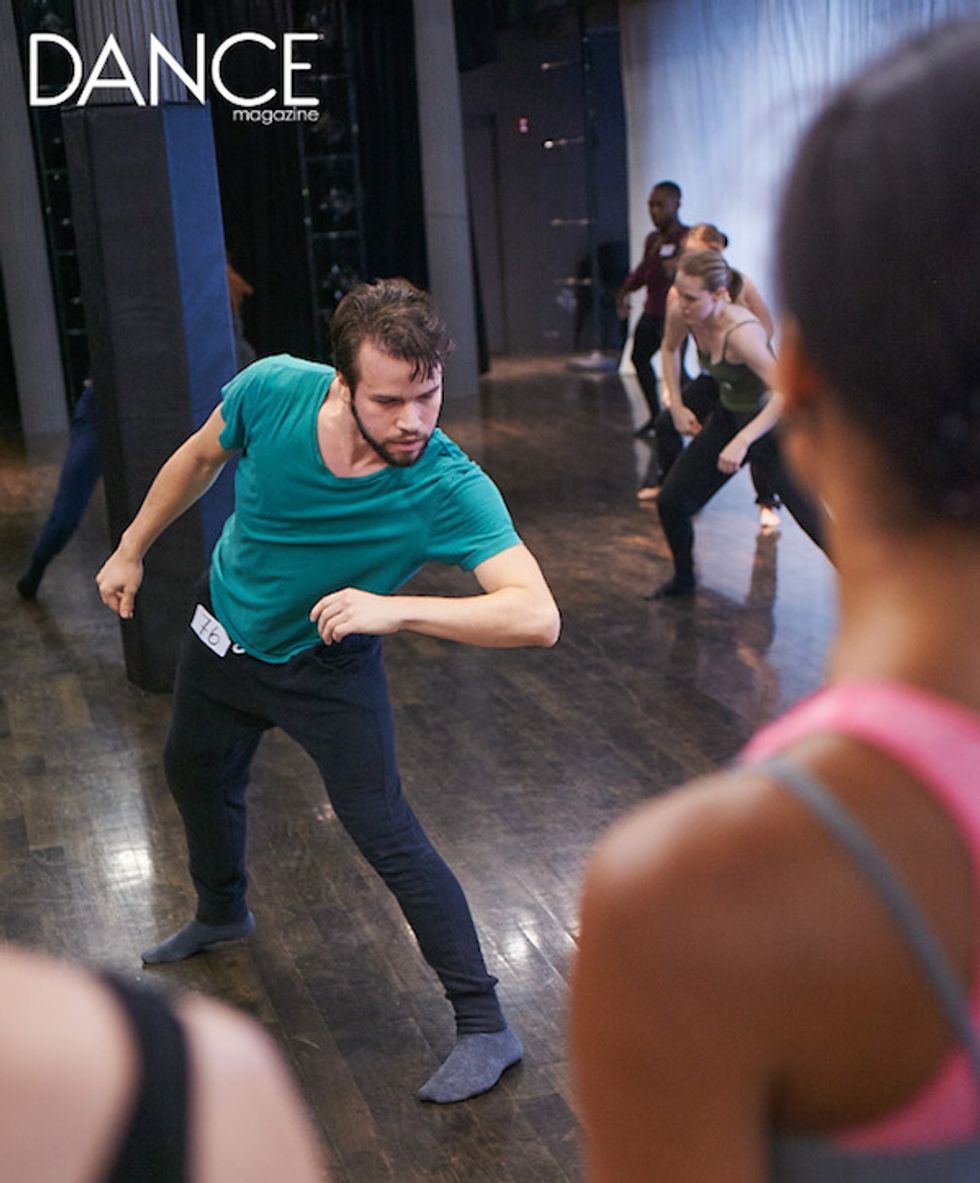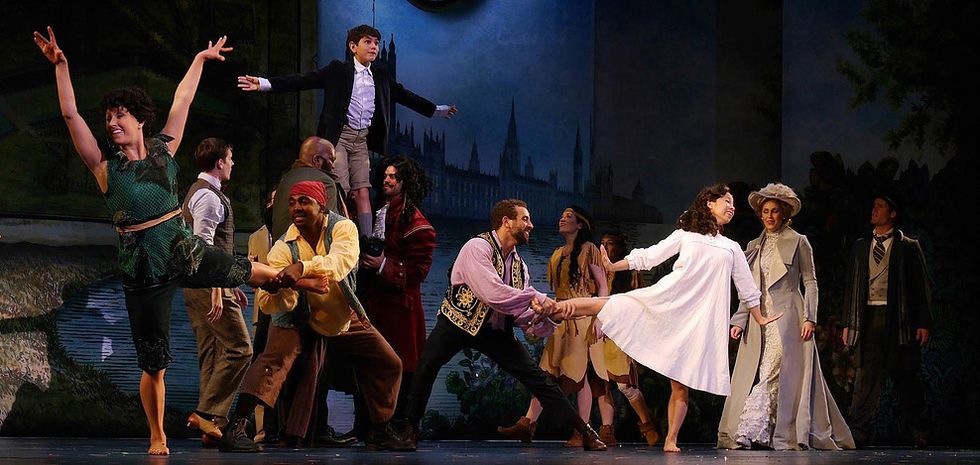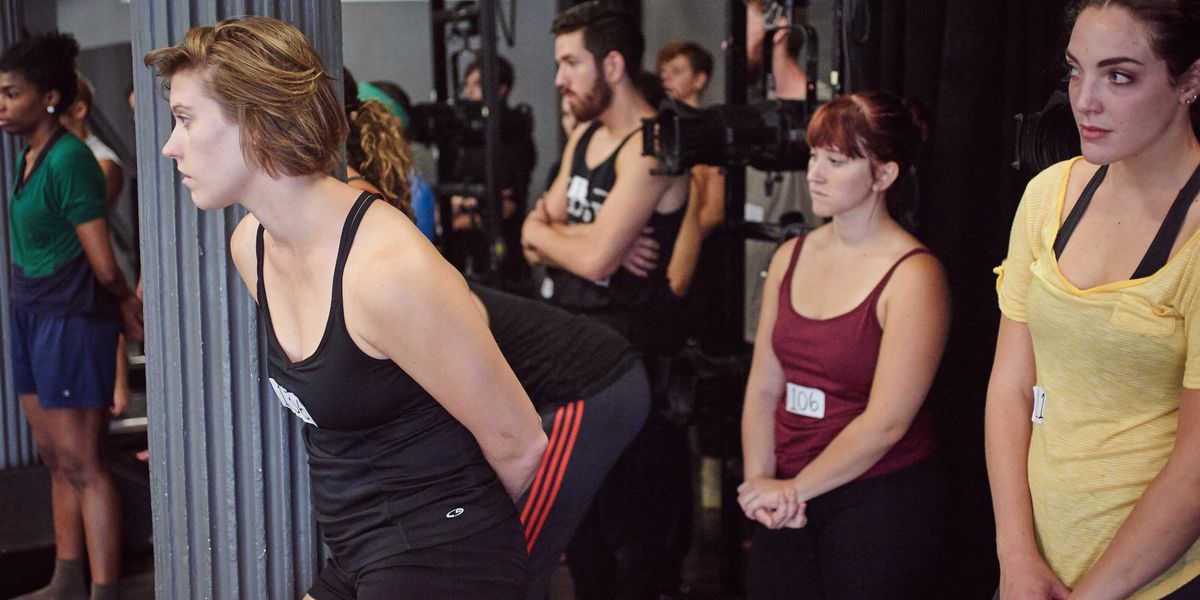Want to Be a Better Auditioner? Reframe Your Approach with These 4 Steps
In 2012, freelance contemporary dancer Adrianne Chu made a major career change: She decided to try out for A Chorus Line. “Even though I didn’t get the job, I felt like I was meant to do this,” says Chu. So she started going to at least one musical theater audition every weekday, treating each as a learning experience. After several years of building up her resumé, Chu’s practice paid off: She booked a starring role as Wendy in the first national tour of Finding Neverland.
Approaching auditions as learning opportunities, especially when you’re trying to break into a different style or are new to the profession, can sharpen your skills while helping you avoid burnout. It also builds confidence for the auditions that matter most.
Shift Your Mind-Set

Cultivate the skills you need for auditions in class. Photo Courtesy Patel Conservatory.
Start by treating familiar classes like auditions, suggests Dr. Elena Estanol, psychologist and co-author of Dance Psychology for Artistic and Performance Excellence. Focus on the skills you will need, like expression, performance and ability to learn material as quickly as possible. When you arrive at an actual audition, think of it as class in a slightly different environment.
“The key is to adopt a growth mind-set, meaning that every experience is an opportunity for learning, rather than an event in which you have to prove yourself,” says Estanol. “See auditions as a chance to showcase your skills and talents, see other dancers, and be exposed to new choreography and styles of teaching.”
Learn from Your Competition

Absorb helpful information from your fellow auditioners. Photo by Jim Lafferty.
It’s okay to ask your fellow auditioners for tips and extra information. It may seem counterintuitive, because technically they are your competition. However, Dr. Kate Hays, a psychologist who works with dancers and athletes, says that if you feel comfortable, engaging with your peers may help you feel more positively about auditioning. Plus, other dancers may know more about what a certain choreographer likes, or be able to tell you whether to expect rapid-fire cuts. “You make friends, and you take a piece of information from each person,” says Chu. “Everyone in the waiting room has a different puzzle piece.”
Set Specific Goals

Before Adrianne Chu landed the role of Wendy in Finding Neverland’s tour, she familiarized herself with the choreography. Photo Courtesy Chu.
Have a goal in mind separate from whether or not you book the gig: If you are new to cattle calls, for instance, use the audition to get accustomed to being part of a big group. Or, simply familiarize yourself with the choreography of a particular show or a company’s repertory. Before Chu was cast as Wendy, she was already familiar with the Finding Neverland choreography because she had been to previous open calls for the show. Auditions may also give you rare access to high-profile choreographers, so relish these opportunities to learn directly from them.
Think It Through

Keep a journal about your audition experiences. Photo by Lisa Fotios/StockSnap.
Reflecting on your performance after an audition is perhaps the most important part of turning it into a constructive experience. “Make sure you don’t do this right after,” says Hays. “All you’ll be able to think about is how you screwed up.” Instead, wait at least a few hours, and then ask yourself: What did I do well, what would I do differently in the future, and what did I learn? Estanol recommends keeping a journal to record these thoughts. This will allow you to track your progress over time, and remind you of insights that may ultimately lead to a job




